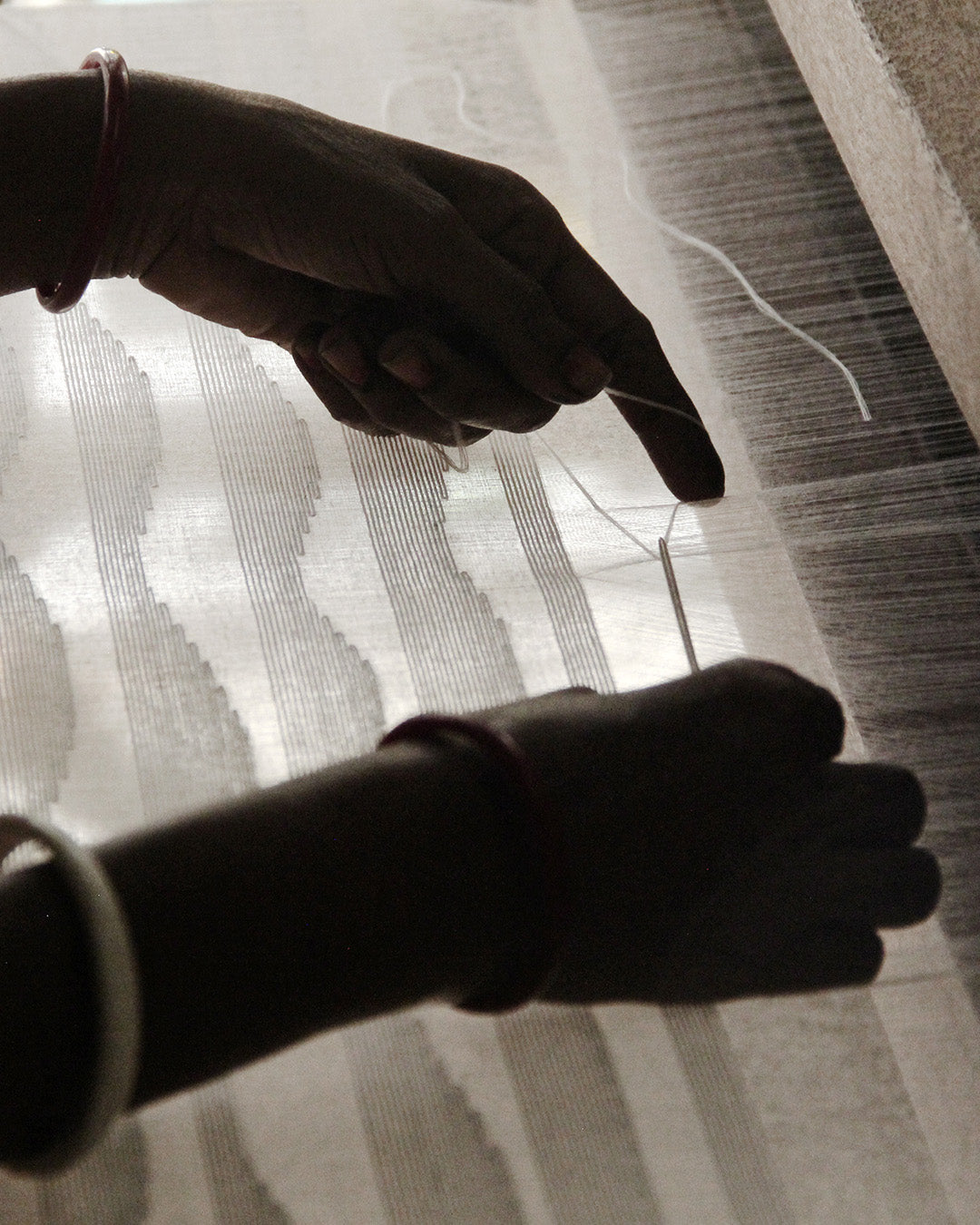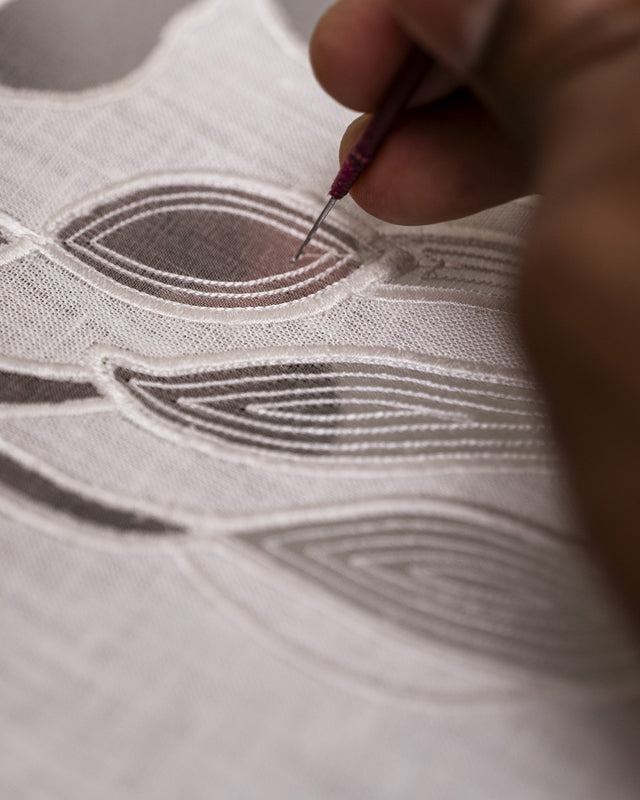Our Ethos
Why ruin the earth?
The world has seen more pollution in the last century than in all past centuries put together. Evidence shows that humans are responsible for 100% of global surface warming since 1950. Few people know that the Fashion industry is one of the main culprits. Indeed, Fashion is the third most polluting industry after food and construction. It emits 10% of carbon emissions, releasing 1.2 billion tonnes of carbon dioxide per year, more than all international flights and all maritime shipping combined.
Fashion production dries up water sources and pollutes rivers and streams. What’s more, 85% of all clothing produced, which is a truck load every second, is dumped in landfills every year. Over 65% of these garments are made of polyester. And the everyday washing of polyester sends millions of bits of plastic into our oceans destroying marine life.
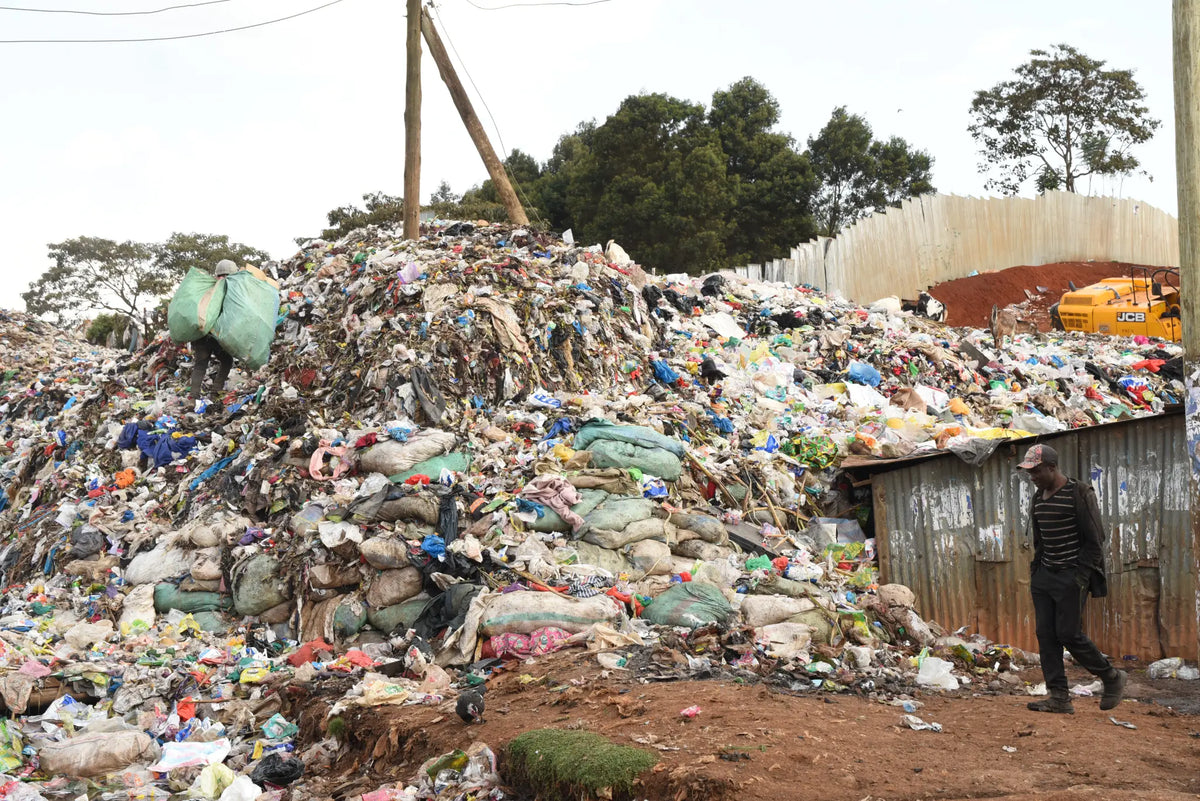
A mountain of discarded clothing in Kenya. Source: Cleanup Kenya and Changing Markets Foundation
These dreadful facts inform the foundation on which Varana was built. The question is this: do we have to ruin the earth in order to dress ourselves? Or is there another way?
The Varana Way
Varana’s approach demonstrates that beauty and luxury do not have to come at a social and environmental cost. We prioritise design, quality and longevity, recognising the urgent need to transition to a circular economy. Varana’s ethos drives us to bring stunning craftsmanship to the world, whilst peacefully co-existing with our natural surroundings.
Sustainability is thus at the heart of everything we do at Varana. In an age of fast and wasteful fashion, Varana strives to create something different: exquisitely handcrafted artisanal clothing that is made to last a lifetime. Sustainability and environmental impact are considered at every stage of our products’ journey: from design, to sourcing, to production, to end-of-life.
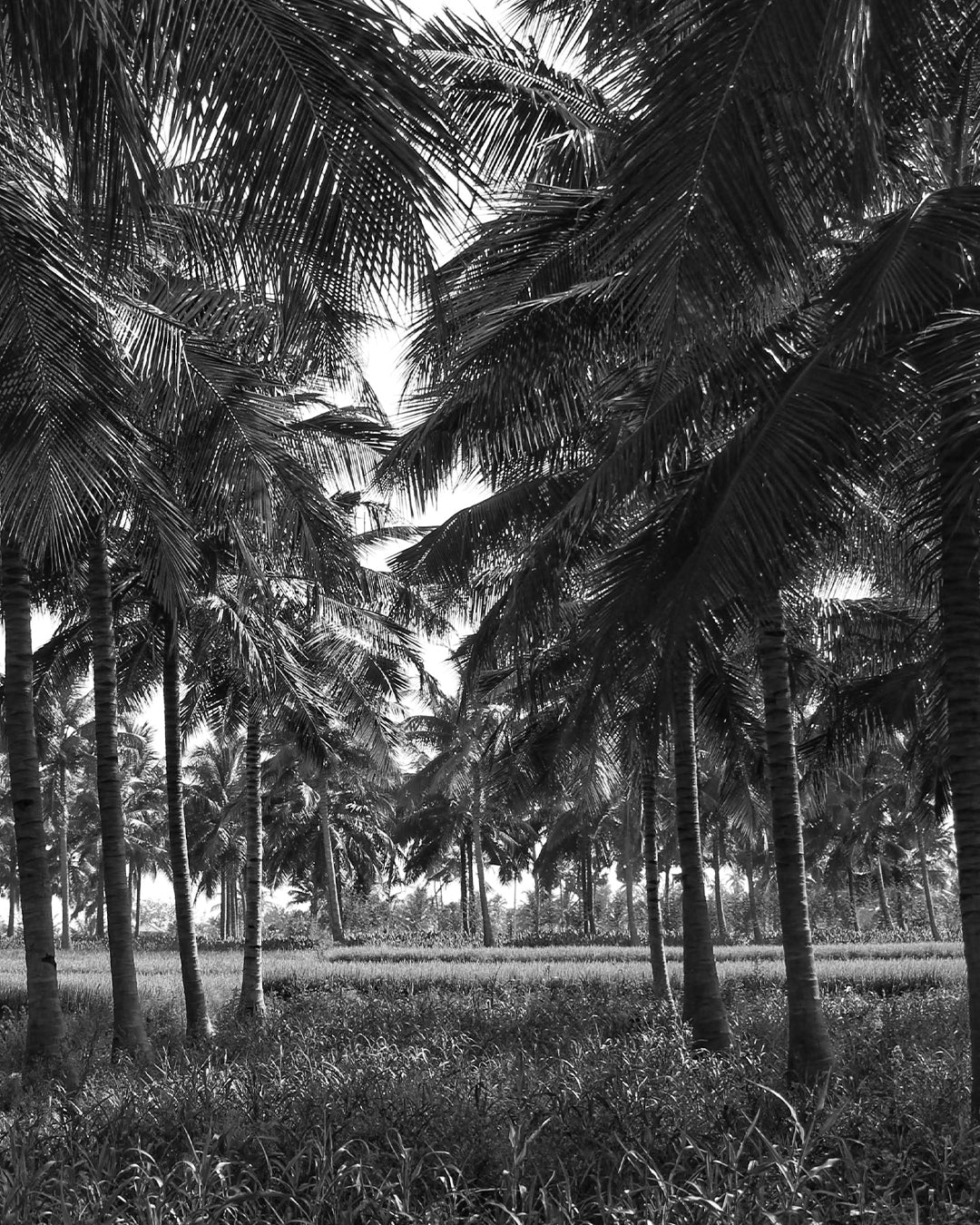

Eco-Friendly Fabrics That Return To The Earth
Varana is determined to only use natural fabrics that are 100% biodegradable. Our sustainable fabrics include silk, cotton, linen and cashmere, all of which involve minimal waste during production and are readily biodegradable. By not using synthetic fibres such as polyester, nylon and acrylic, which are made from petroleum, Varana significantly limits its contribution to plastic pollution and climate change. In addition, the dyes we use for our clothing are azo-free and free of toxic chemicals and carcinogenic substances.
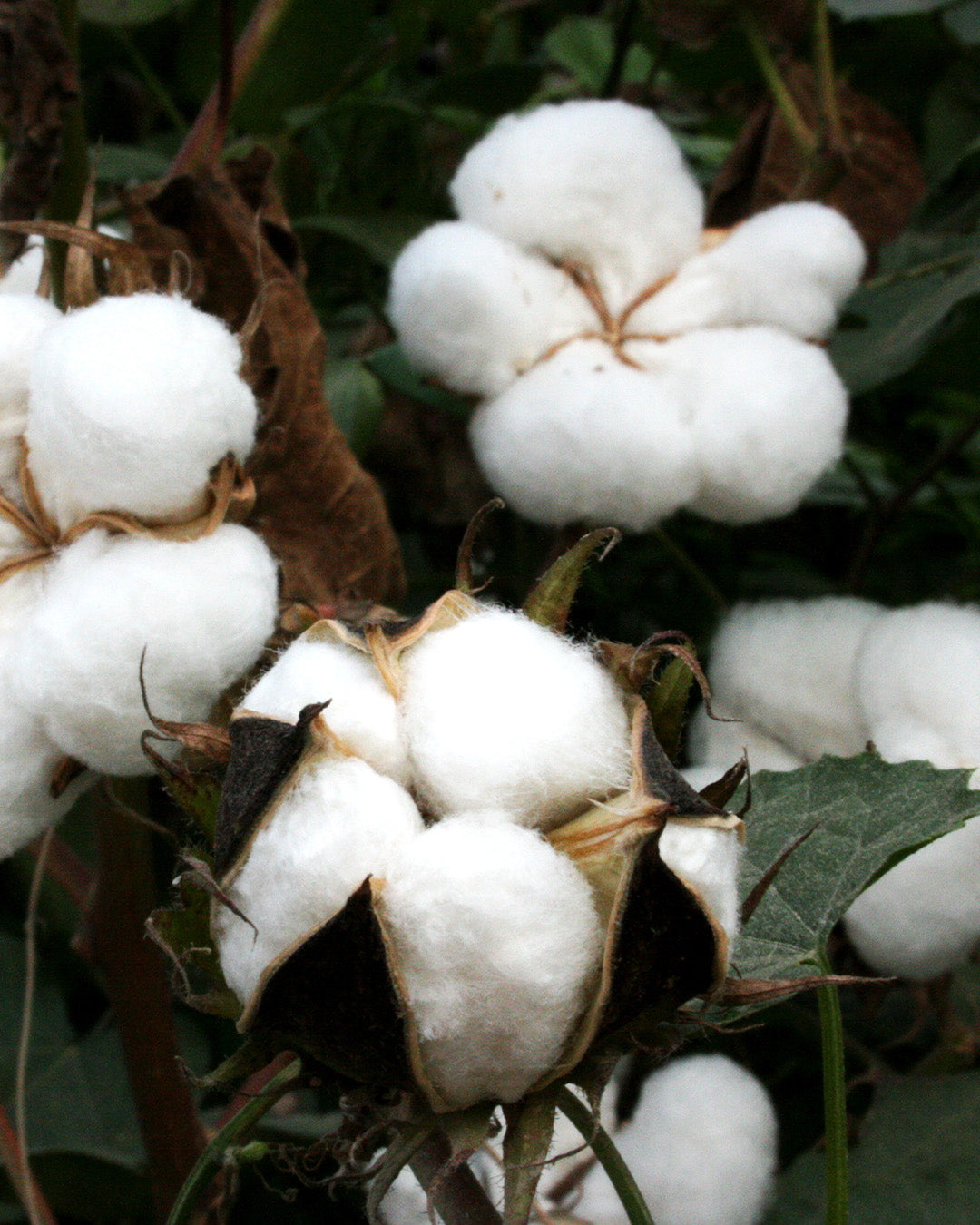

Varana’s aim is to tread gently on the earth without leaving a nasty footprint.
Our Commitment to Environmental Sustainability
Biodegradability is a very important factor in environmental sustainability, and Varana’s commitment to using natural fabrics like cotton, silk, and linen aligns with this crucial ethos. When natural materials biodegrade, they break down into organic compounds ultimately returning to and becoming part of the soil.
Unlike synthetic materials that often release harmful chemicals during decomposition, natural fibres break down without releasing harmful substances into the earth. By choosing biodegradable fabrics, Varana not only promotes a healthier planet but also encourages a shift towards sustainable practices that respect the Earth’s natural cycles. In the end, Varana garments will be absorbed into the earth without leaving a trace.

How Varana is Transforming Fashion with Eco-Friendly Practices and Artisanal Integrity
As people buy more and more clothes, the growing market for cheap new styles is taking a huge toll on the health of the earth. Clothing production has doubled in the last twenty years, since the rise of fast fashion. Today, fashion companies have moved from two collections a year to as many as twenty-four.
Varana’s commitment to the longevity of its eco-friendly clothing reflects a broader ethos of sustainability that resonates with the conscious consumer. Embracing the philosophy of “buy less, choose well, make it last,” prolonging the life of garments is a powerful step towards reducing the environmental footprint of the fashion industry. By encouraging our customers to invest in timeless, durable pieces, Varana promotes a more sustainable approach to consumption. Extending the lifespan of clothing not only reduces the demand for constant production but also minimizes the volume of discarded items in landfills. This shift towards a more intentional and mindful wardrobe contributes to the conservation of resources, curtails energy consumption, and diminishes the environmental impact associated with the entire life cycle of clothing.
At Varana, we are firmly committed to reusing and repurposing all our fabrics and garments. Garments need not be discarded, as they are designed to stay relevant and to be worn season after season.
Extending the life of a garment by just 9 extra months, can reduce carbon, water and waste footprint by 30% each
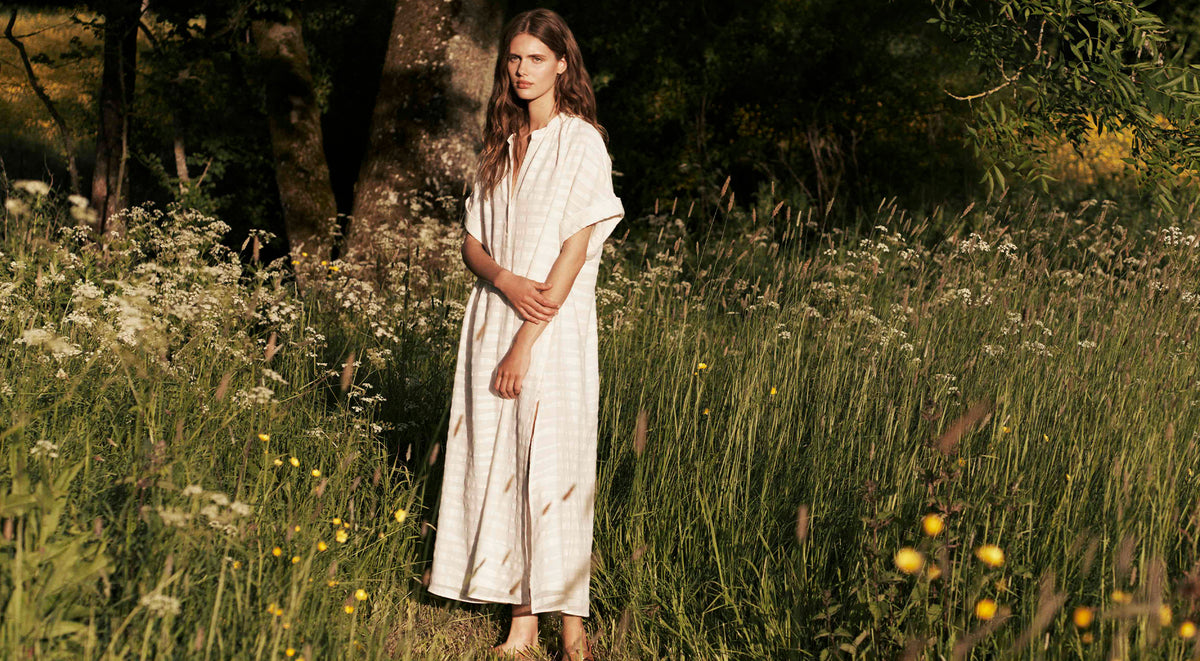
Mending
Varana’s dedication to longevity extends beyond the initial purchase, to a commitment to the enduring quality of its garments. Recognizing that wear and tear are inevitable, Varana happily offers assistance in mending any frayed or damaged pieces. Mending aligns seamlessly with our sustainability ethos, as we encourage customers to view their garments as long-term investments rather than disposable commodities.
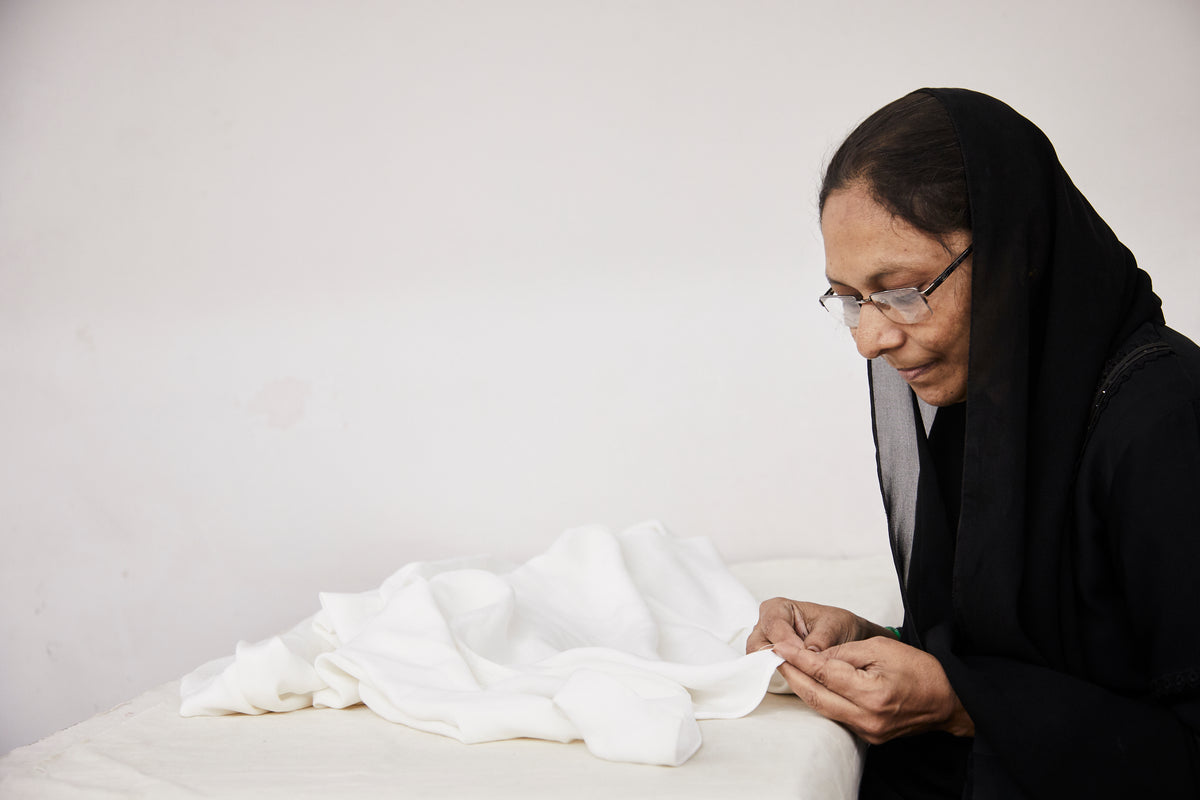
Embracing Responsible Consumption
By fostering a culture of repair and restoration, Varana not only supports the preservation of individual items but also promotes a broader message of reducing waste and embracing responsible consumption. In providing this service, Varana exemplifies a holistic approach to eco-friendly fashion that values durability, craftsmanship, and the enduring beauty of well-loved pieces, championing sustainability with every stitch.
Our fabrics include silk, cotton, linen and cashmere, all of which involve minimal waste during production and are readily biodegradable.
It is of equal importance to Varana to be kind to the environment and to people. We exist to support artisans who are rapidly losing their jobs due to the rise of globalisation and industrial mass production by reinterpreting the vocabulary of traditional craft through the best of contemporary design.
Sourcing and Supply Chain: Transparency and Integration
We begin by making fabrics which are woven, printed or knitted in different parts of the sub-continent, from the Himalaya in the North, to Rajasthan in the West, Bengal and Jharkhand in the East and in Tamil Nadu and Karnataka in the South. Our suppliers are compliant with the EU’s REACH regulations and also make use of Effluent Treatment Plants (ETPs) to ensure that there is no water pollution from the dyes used.
The garments are then both designed and sewn in our own clean and pleasant atelier in Bangalore; made on hand operated sewing machines in small batches with hand finished details. Unlike fast fashion brands that depend on complex multi-national supply chains and factories, Varana’s supply chain is closely integrated with small-scale craftspeople and small owner workshops, thus we are closely acquainted with the people who work on our products.
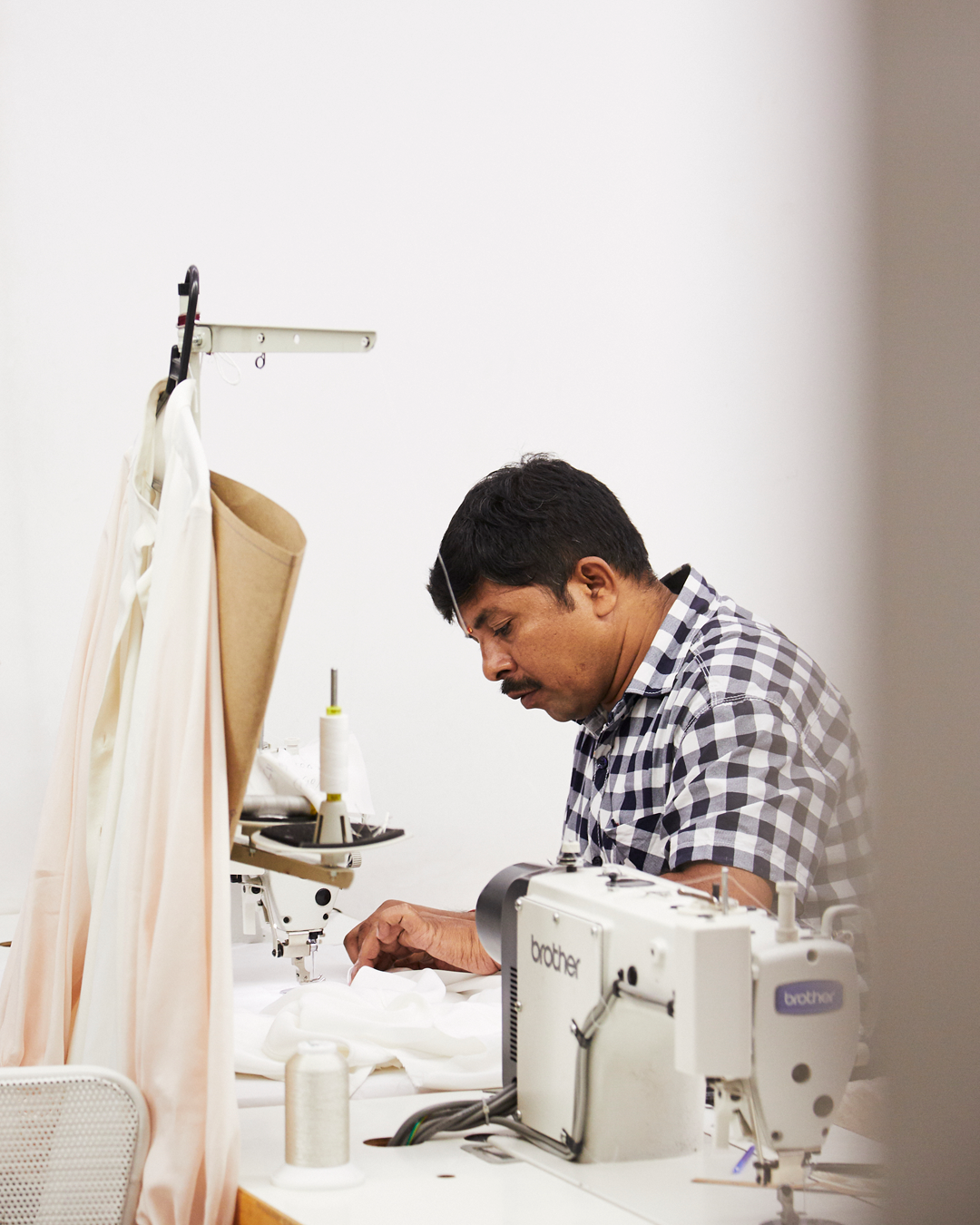
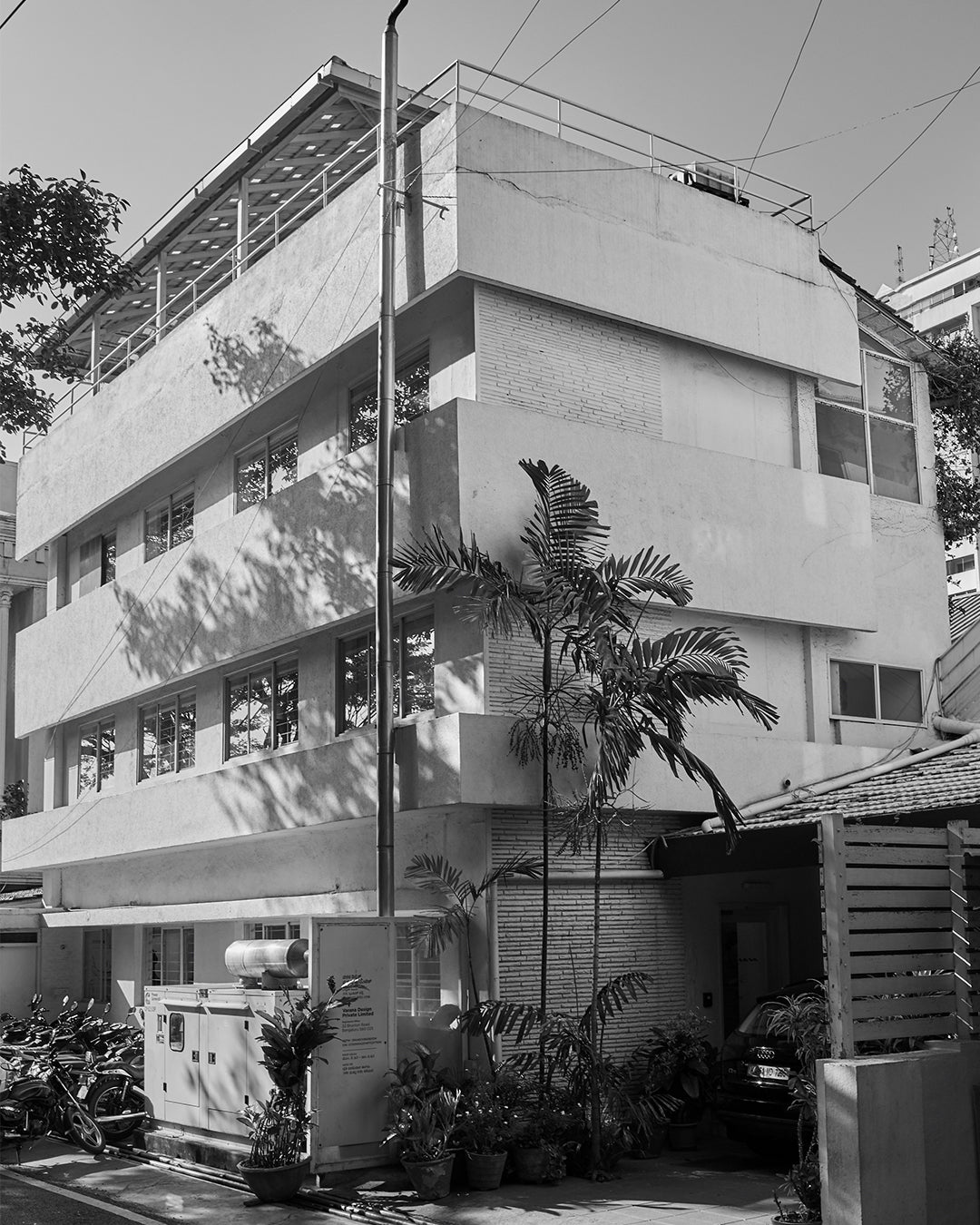
The Varana Atelier in Bangalore
Our Ambitions: Sourcing Sustainable Fabrics
Varana is committed to a high degree of sustainability in its supply chain and production. We are actively working on sourcing 100 percent of our cotton from sustainable rain-fed cotton varieties and increasing the use of handloom and Khadi (hand spun and handwoven) fabrics, which have an extremely low carbon footprint, in our collections.
